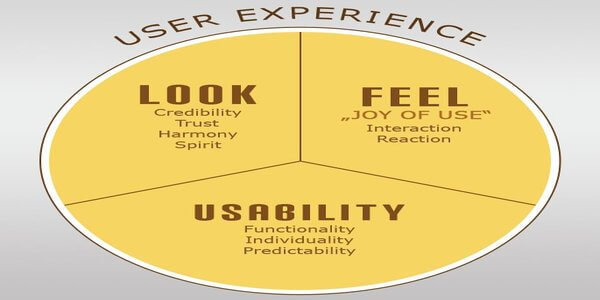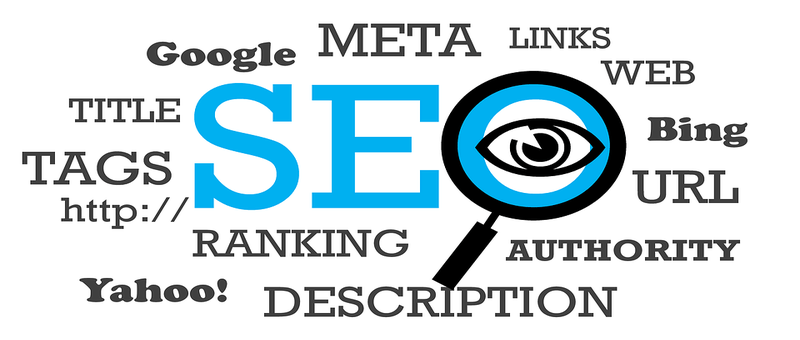Do you have an idea of the number of blog posts that are published each day?
Well, the answer will blow your mind.
Over 2 million!
This means that by the time you are through with reading the sentences above, about 46 people would have made an attempt to publish. Now, without a doubt, this number is enormous and it becomes difficult to be unique from the rest of the pile. But then, you have to, particularly if you want your blog to be a successful one.
While it is possible to spend 2-3 hours on writing those blog posts, the more important period is the few minutes which could be between 10 & 15 minutes used in optimizing each of those posts.
Now you can see why millions of people Google the term “SEO” each month.
In a digital world where over 90% of online experiences begin with a search, being found on the front page of Google can be the deciding factor between a business that’s growing and one that's at a standstill or probably bankrupt.
Yes, SEO is not a new term but what exactly does it mean?
I mean sure, almost everyone knows that it stands for search engine optimization, but what exactly gets optimized ? What exactly is at the center of optimization?
Is it the design, the writing or the links maybe?
Well, yes to all that but it's so much more than just that. So why don't we start from the scratch?
1.Definition
Let's go by Wikipedia definition, SEO is “the process of affecting the visibility of a website or a web page in a search engine’s unpaid results”
Okay, now in a language that we can all understand. Here’s my personal interpretation of it:
SEO is the process by which your online content is optimized such that it gets shown as a top result for searches of a certain keyword on a search engine.
Let me break that down even further:
There’s you, doing the SEO, the search engine, and the searcher. Let's say you have an article about how to bake sponge cake, and you want the search engine (which, in most cases, is Google), to show it as a top result to anyone who searches for the phrase “sponge cake”, then SEO is the best way to get that done. It's what will make Google very likely to include your article as one of the top results whenever someone searches for that keyword. Simply put, SEO is the magic needed for that to be pulled off successfully.
Bonus: Download the SEO free checklist
2.Overview
The next question you might ask is, what exactly does that magic look like, and why is it even important?
For starters, about 93% of online experiences start with a search engine, 68% of which rely on Google for that experience.
Now in addition to that, the first 5 results in Google get 67% of all clicks, so I hope that you get an idea of why SEO is so important.
There’s a joke going around the web that emphasizes why it is necessary to hit the front page of Google:
If you ever need to hide a dead body,you should place it on the second page of Google search results
If your blog post, article or product appears on any other page of the Google search results apart from the first page, then it's similar to not being ranked at all.
However, to understand how to be a regular on the first page of the results of relevant searches, you first need to know how search even works.
Now that you have a basic idea of SEO, let's examine some of its components in detail.
Now, what search engines do is that they try to provide the most pertinent results to the inquiries made by a searcher which could range from a simple question like “which country is Elton John from?” (The answer of which Google will likely provide without you having to leave the SERP) to more complicated queries such as “what is the best Chinese restaurant nearest to me?”
How search engines provide these results is due to their own internal algorithms, which we’ll probably never really know, but there are factors that we know for certain tend to influence these results and it's all about the level of relevance… For instance: a searcher’s location, their search history, time of day/year, etc.
3.The quality of your content


Do you happen to publish helpful, useful articles, videos or other types of media from time to time that is popular and well-produced? Do you make your writing real by targeting actual human beings rather than the search engine itself? Well, tell you what, you should.
This is because latest research from Searchmetrics on ranking factors shows that Google is tending more towards longer-form content that centers on and understands a visitor’s intention as a whole, rather than just using keywords based on popular search inquiries to create content.
So invariably, with SEO you need to make providing the best user experience your concern and be less focused on keywords.
4. User experience


This is quite important as you need a site that can be navigated and searched easily with relevant internal linking and related content. Just make sure your site is filled with all the stuff that will keep visitors on your web page with the urge to even explore further.
5. Site speed
The speed at which various sites load is constantly turning out to be a marker for search engines. Google may soon start labeling results that are hosted on Accelerated Mobile Page (AMP) so this might be a sign that the ‘mobilegeddon’ of 2016 is already taking place.
6.Cross-device compatibility
How well optimized are your website and its content? Will they fit in on any device irrespective of the screen size? Bear in mind that Google has stated that responsive design is its preferred method of mobile optimization. So the above points should be considered in order to get this done.
7.Internal linking


Yes, clearly, your site should be easy to use and navigate but on top of that, you need to carry out internal linking as this will help to drive traffic to the site and also increase your trust signal with Google.
Internal linking has many advantages:
- It expands the reading options of your audience. This will be possible as long as the content is relevant and you make use of clear anchor text (the clickable highlighted words in any given link). Furthermore, this will bring about a reduction in your bounce rates.
- It helps with an improvement in your ranking for certain keywords. If you are interested in making an article to rank for the term ’SEO basics’ then you just have to start linking to it from other posts using variations of similar anchor text. This then informs Google that this post is relevant to people searching for ‘SEO basics’. However, it is recommended by experts that you vary your anchor text pointing to the same page or else Google may term multiple identical uses as ‘suspicious’.
- It helps Google crawl and index your site. Those little Google bots that are sent out to fetch new information on your site will have a better idea of how useful and trustworthy your content is, the more they crawl your internal links.
8.Authority
An authority website is one that has gained the trust of its users, the industry it operates in, other websites and search engines. Normally, a link from an authority website is of immense value because it’s viewed as a vote of confidence. So once you have more of these, combined with a higher quality of content that you produce, the chances of your own site becoming an authority is significantly increased.
However as the aforementioned Searchmetrics research suggests, year-on-year correlations between backlinks and rankings are decreasing, so perhaps with time ‘links’ may not be as important to SEO as we once thought.
Bonus: Download the SEO free checklist
9.Meta descriptions and title tags
Having a Meta description isn’t a guarantee for better ranking on the SERP, but it is something you should definitely consider making use of before you publish an article as it can help to increase your chances of a searcher clicking on your result.
The Meta description is the short paragraph of text that is seen under your the URL of your page in the search results, it’s also a feature that should be in your complete control.
You need to make sure it is precise (under 156 characters is good), clear and highly relevant to your headline and the content of the article itself.
Title tags inform search engines and visitors what your site is about in the most concise and accurate way possible. This is made possible because the keywords in your title tag are highlighted in search engine results (if the query uses those keywords), as well as in your browser tab and when sharing your site externally.
You can write your own title tag inside the <head> area of your site’s HTML:
<Head>
<title>Example Title</title>
</head>
You should make use of just a few accurate keywords to describe the page as well as your own brand name. However, ensure that only relevant keywords are used and don't forget to keep your writing focused on people even though you are trying to keep it in line for search engines so that you don't end up losing your audience.
10.Schema markup
This helps to make your search results look more appealing and all you need to do is add this feature to the HTML of your pages. Consequently, your search results can be turned into a rich media playground, adding star-ratings, customer ratings, images, and various other bits of helpful info.
Schema is also the preferred method of markup by most search engines including Google, and it’s no doubt due to its ease of use.
If you don't know how to create Schema markup language there is an easy WordPress plugin available that does the coding for you.


11.Properly tagged images
Many people tend to forget to integrate the alt attribute when they upload images to their content, but this is something that you cannot afford to overlook because Google cannot ‘see’ your images, but can ‘read’ the alt text.
So providing an accurate description of your image in the alt text will increase the chances of your images appearing in Google Image search.
Furthermore, it will also improve the accessibility of your site for people making use of ‘screen reader’ software.
12.Evergreen content
Rather than splatter the Internet with a host of ‘quick win’ news stories with little knowledge, you can simply go for more evergreen content that will get people talking.
You need to understand that more thoughtful and helpful articles filled with practical information that people can make use of will lead to the generation of that constant buzz you wish for in the long-term wins as well as an increase in the traffic to your site. It will also allow your site to occupy highly visible positions in the SERPs.
13.Domain names
You should use sub-directory root domains (searchenginewatch.com/category/seo) rather than sub-domains (searchenginewatch.category.seo.com) as this is better for your overall site outlook and structure.
You should also eliminate hyphens (search-engine-watch.com) as well as alternative Top-level domain names (.biz .name .info) as these are considered spammy.
Having a ‘keyword rich’ domain name may bring about closer scrutiny from Google. According to Moz, Google has “de-prioritized sites with keyword-rich domains that are lacking in quality. While it is undeniable that having a keyword in your domain can be beneficial, however, it can also bring about closer scrutiny and a possible negative ranking effect from search engines—so be careful here.
Also, ensure that if you operate a site without the www. prefix, anyone who types in www.example.com will still be redirected to your site. If not, Google may assume these are two different sites and your level of visibility could be compromised.
14.Headlines and permalinks
When it comes to the headlines for your articles, preferably, keep it under 55 characters to ensure they are completely visible in SERPs. Make sure they’re brief, catchy and descriptive as much as possible (though this might be impossible a lot of times). Basically, just avoid click-bait headlines, and do not promise something that is not contained found in the content.
The permalink (or URL), which can normally be changed in your CMS even after it’s been set automatically, is not a must to match the headline exactly. Google has given you the room to use three to four keywords and all you need to do is put the most important keywords first.
15.Comments
Do not turn off your comments system because it allows people to talk about your content either positively or negatively. But at least, you get to know that people are reading it and you observe as they discuss your content. This means you're generating a buzz and you will be able to know what to improve upon and what to otherwise maintain.
Just be sure to remember to filter out spam comments, or if any slips through, ensure it is removed immediately. Furthermore, ensure that you add the no-follow value to your comments section so Google ignores any erroneous links that may appear.
The best way to filter out spam in your comments is with this WordPress plugin called Akismet.
16.Local SEO
It looks like Google is providing users with search results based on their location. This is a big bonus for businesses especially those that need to grab a searcher’s attention just at the right moment, i.e. while walking down the street, on their mobile or looking for somewhere to eat.
You should register with Google My Business and then make sure that all of your information is accurate and regularly updated such as opening times, contact information, customer reviews and also that you’re in the right category.
17.Social
Social media marketing is one way to raise your site's visibility without the technicality of SEO.
This means being present on all relevant social channels (wherever your audience may be), and rather than broadcast your content in a faceless manner, use it as a means to truly interact with people in a friendly manner while also being helpful and entertaining.
The actual relationship between social signals and search rankings is debatable but here’s a good overview of the subject.
What are search engines NOT looking for?


There are many ‘black hat’ practices that can bring the full consequence of a Google penalty down on your site, so the best thing is to avoid doing the following as much as possible even if it looks like a brilliant easy win at the time.
18. Keyword stuffing
This involves making use of keywords excessively on your pages, especially when it is clear that they interfere with the readability of your site. Though it’s still under debate as to whether keywords are still used by Google as a ranking factor anymore.
19.Link buying or excessive link exchanging
Are you trying to get links externally in the hope of boosting your site's visibility? Well, squash the thoughts right now because it's not worth it. The most valuable links to your site are the ones that come from authority sites found within your own niche.
20.Annoying ads
These are stuff that looks overly intrusive and ends up interfering with the pleasure of reading your content while at the same time slowing down the speed of your site.
21.Mobile app interstitials
If mobile visitors to your site are met with a full-screen advert to download your app, then you will no longer be considered mobile-friendly by Google.
22.Duplicated content
If Google finds two similar pieces of content, be it on your own site or on another that you’re not even aware of, it will only index one of those pages. So that means you should be conscious of scraper sites that might steal your content automatically and republish it as your own.
23.Hidden text and links
There are ways by which you can manipulate rankings that may not be visible to a user but you can be sure Google will probably find and punish you for.
Stay away from using white text on a white background, positioning text off-screen, setting the font size to zero or hiding a link in a single character like a comma or a full-stop.
Monitoring Your Results
Last, but not least, you will want to follow-up your SEO progress by monitoring your results. There are two very important tools that you can utilize to monitor these results and they are:
· SEO Powersuite – Create a free account or paid account. This tool can be used to track keyword rankings for your website so you can see if they are moving up in search results.
· Google Analytics – Use Google Analytics to learn more about the visitors to your website. In particular, this tool allows you to track your organic search traffic sources to see the keywords people are using to find your website in search results.
This way, you can see the keywords that lead to visits which motivate visitors to do what you want them to do on your website such as signing up for a mailing list or purchasing a product. This will help you learn what keywords you should be targeting with your SEO campaign.
This is not to say that there are no other valuable SEO tools out there, but these are the best ones to start with to help you understand more about your SEO efforts and determine whether they are effective or not.
Clearly this isn’t everything that you can do to help your initial SEO efforts, but it’s a good start.
So, if you have any comments, kindly leave them below.


